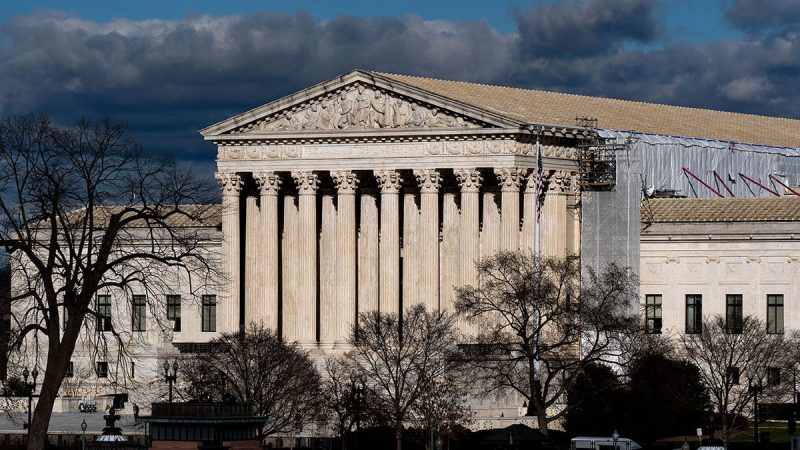
Justice Alito questions whether presidents will have to fear ‘bitter political opponent’ throwing them in jail
Supreme Court Justice Samuel Alito on Thursday asked Justice Department attorneys whether presidents would have to fear prosecution by a ‘bitter political opponent’ if justices reject former President Trump’s immunity claims.
The Supreme Court heard arguments on the issue of presidential immunity, which could set a precedent for whether former presidents have ‘absolute immunity’ from criminal prosecution.
Justice Samuel Alito on Thursday, during arguments from Justice Department attorney Michael Dreeben — who presented arguments on behalf of Smith — questioned the repercussions of charging a former president.
‘Now if an incumbent who loses a very close, hotly contested election knows that a real possible nullity after leaving office is not that the president is going to be able to go off into a peaceful retirement, but that the president may be criminally prosecuted by a bitter political opponent,’ Alito asked.
‘Will that not lead us into a cycle that destabilizes the functioning of our country as a democracy? And we can look around the world and find countries where we have seen this process, where the loser gets thrown in jail,’ he said.
‘I think it’s exactly the opposite,’ Dreeben replied. ‘There are lawful mechanisms to contest the results in an election.’ Dreeben went on to discuss Trump’s attempts to challenge the 2020 election in the courts.
The official question the Supreme Court is considering is: ‘Whether and if so to what extent does a former president enjoy presidential immunity from criminal prosecution for conduct alleged to involve official acts during his tenure in office.’
The question stems from Special Counsel Jack Smith’s federal election interference case in which he charged former President Trump. Trump pleaded not guilty to all charges and argues he should be immune from prosecution from official acts done as president of the U.S.
It’s unclear how soon the Supreme Court will rule on the presidential immunity issue.
Both liberal and conservative justices focused on the broader implications for future presidents, but raised sharply different concerns.
‘If the potential for criminal liability is taken off the table, wouldn’t there be a significant risk that future presidents would be emboldened to commit crimes with abandon while they’re in office?’ Justice Ketanji Brown Jackson, appointed by President Biden, asked.
If someone with those kinds of powers, the most powerful person in the world with the greatest amount of authority, could go into office knowing that there would be no potential full penalty for committing crimes. I’m trying to understand what the disincentive is from turning the Oval Office into, you know, the seat of criminal activity in this country,’ she said.
Justice Brett Kavanaugh summed up the stakes for the court’s decision: ‘This will have huge implications for the presidency.’
‘I’m not talking about the present, so I’m talking about the future,’ Kavanaugh said.
And Justice Neil Gorsuch stressed during questioning: ‘We’re writing a rule for, yes, for the ages.‘
As for Alito’s question, the former president has repeatedly claimed that he is being prosecuted by his political opponents, warning Americans and voters that all cases against him, in all jurisdictions, are being brought by his opponent — President Biden — and being done in coordination with the White House.
Trump says his opponents want to keep him confined to the courtroom during the 2024 election cycle to prevent him from campaigning.
The former president, who was prohibited by New York Judge Juan Merchan from attending the Supreme Court arguments Thursday, instead sat in a Manhattan courtroom for his criminal trial out of Manhattan District Attorney Alvin Bragg’s investigation.
Bragg charged Trump with 34 counts of falsifying business records in the first degree. Trump pleaded not guilty.
